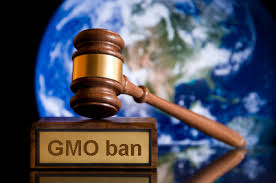
Source: World Health Organization (WHO)
Human infection with avian influenza A(H7N9) virus – update
The previous report of avian influenza A(H7N9) virus detection in live poultry exported from mainland China to Hong Kong SAR shows the potential for the virus to spread through movement of live poultry,
- at this time there is no indication that international spread of avian influenza A(H7N9) has occurred.
However as the virus infection does not cause signs of disease in poultry, continued surveillance is needed.
Speaking of international spread of this, I read the following on the WHO website also. I know it doesn’t mean there is an international outbreak, but it does hit closer to home than China. :
On Jan. 9, 2014 the first case of human infection with avian influenza A(H5N1) virus was reported in Canada and was the first confirmed human case in the Americas Region.
- WHO was informed by Canada of a laboratory-confirmed case of human infection with avian influenza A(H5N1) virus in a previously healthy adult, who was first symptomatic on 27 December 2013 and died 3 January 2014.
- The person visited Beijing, China, from 6 to 27 December 2013 and returned to Canada on 27 December 2013. The individual was symptomatic during travel with malaise and feeling feverish. The person travelled with one other individual who is well.
- Laboratory test was conducted at the Alberta Provincial Lab and confirmed by Canada’s National Microbiology Laboratory.
- The person had no known exposure to poultry or other animals, nor to ill individuals.
- Close contacts, including household contacts and health care workers, are under observation and have received antiviral post-exposure prophylaxis.
- All contacts have been asymptomatic to date.
- Follow-up of the airline passengers is also ongoing.
Source: http://www.who.int/csr/don/2014_01_09_h5n1/en/
(Okay, back to the original story):
Avian influenza A(H7N9) is a subtype of influenza viruses that have been detected in birds in the past.
- This particular A(H7N9) virus had not previously been seen in either animals or people until it was found in March 2013 in China.
- However, since then, infections in both humans and birds have been observed.
- The disease is of concern because most patients have become severely ill.
Most of the cases of human infection with this avian H7N9 virus have reported recent exposure to live poultry or potentially contaminated environments, especially markets where live birds have been sold.
- This virus does not appear to transmit easily from person to person
- sustained human-to-human transmission has not been reported.
Here is a link to see the Avian Influenza situation updates or archives: http://www.who.int/influenza/human_animal_interface/avian_influenza/archive/en/
- (Cases of human infection with H5N1 will only be reported on Disease Outbreak News for events that are unusual or associated with potential increased risks.)
Disease outbreak news
MARCH 20, 2014 –
On March 19, 2014,
the National Health and Family Planning Commission (NHFPC) of China notified WHO of an additional three laboratory-confirmed cases of human infection with avian influenza A(H7N9) virus
Details of the cases reported are as follows:
- A 71 year-old woman from Shenzhen City, Guangdong Province. She became ill on 5 March, was admitted to a hospital on 15 March and is currently in a severe condition. The patient had a history of exposure to poultry.
- A 73 year-old man from Shenzhen City, Guangdong Province, He became ill on 10 March, was admitted to a hospital on 17 March and is currently in a critical condition. The patient had a history of exposure to poultry.
- A 75 year-old woman from Chenzhou City, Hunan she became ill on 10 March, is currently hospitalised and in a stable condition.
Sporadic human cases
The overall risk assessment has not changed (see WHO Risk Assessment under ‘Related links’).
Should human cases from affected areas travel internationally, their infection may be detected in another country during or after arrival.
If this were to occur,
- community level spread is unlikely as the virus does not have the ability to transmit easily among humans.
- Until the virus adapts itself for efficient human-to-human transmission, the risk of ongoing international spread of H7N9 virus by travellers* is low.
* Just for your information: (travellers, when spelled with two l’s generally means a person who travels habitually)
WHO advises that travellers to countries with known outbreaks of avian influenza should avoid:
- poultry farms,
- contact with animals in live bird markets,
- entering areas where poultry may be slaughtered,
- contact with any surfaces that appear to be contaminated with feces from poultry or other animals.
Travellers should also
- wash their hands often with soap and water,
- follow good food safety and good food hygiene practices.
WHO does not advise special screening at points of entry with regard to this event, nor does it currently recommend any travel or trade restrictions.
As always,
- a diagnosis of infection with an avian influenza virus should be considered in individuals who develop severe acute respiratory symptoms while travelling or soon after returning from an area where avian influenza is a concern.
WHO encourages countries to:
- carefully review any unusual patterns, in order to ensure reporting of human infections under the IHR (2005),
- continue national health preparedness actions.
Read the full story here: http://www.who.int/csr/don/2014_03_20_h7n9bis/en/
Sending out thoughts and prayers for a solution to come of this.






